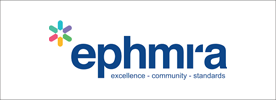
Crafting influential regional and global healthcare campaigns demands more than just surface-level, blanket approach. In today's interconnected world, creating impactful campaigns requires a thorough understanding of local contexts, cultures, and healthcare communities. While digital tools have made remote collaboration possible, conducting in-person qualitative research across different countries can provide unique value. Involving the healthcare community is not just a strategy—it's a necessity to construct high-value regional and global campaigns that resonate with authenticity and impact. By leveraging the insights, expertise, and perspectives of healthcare professionals, patients, and stakeholders, your campaigns can transcend boundaries and deliver meaningful outcomes.
The Power of Healthcare Community Engagement
Healthcare campaigns that resonate with diverse populations stem from a foundation of community engagement. By involving healthcare professionals, patients, and stakeholders, campaigns gain authenticity, relevance, and a greater chance of success. In-person qualitative research amplifies this engagement, fostering nuanced insights that may not be captured through remote methods alone.
Considerations for Conducting In-Person Qualitative Research
- Incentive Levels: Motivating Participation
- Partnering with Local Experts: Cultural Insight and Access
- Tailoring Recruitment Strategies: Reaching the Right Participants
- Addressing Language Considerations: Clear Communication
- Cultural Diversity and Representation: Inclusive Insights
Incentives play a pivotal role in cultivating engagement in face-to-face qualitative research. The value of these incentives should accurately mirror the dedication and time participants contribute to the research. That said however, identifying the appropriate incentive levels demands a nuanced approach, as there's no universal solution. Cultural norms, the cost of living, and local expectations all contribute to shaping the perceived value of incentives. When devising incentive schemes, it's essential to consider not only the duration of the sessions but also the time required for participants to travel to the research venues.
The current landscape underscores a convergence of factors that place increased demands on the already limited time and energy of healthcare professionals (HCPs). Balancing these demands with their aspiration for meaningful involvement underscores the necessity for custom-tailored and captivating incentives that align with their specific circumstances. Collaborating with local experts to assess the most effective incentive strategy becomes crucial, ensuring it deeply resonates with participants and cultivates active engagement.
Local expertise stands as an essential asset when undertaking research within a range of cultural contexts. Partnering with indigenous experts, such as researchers, ethnographers, or consultants, presents invaluable insights into cultural subtleties, modes of communication, and recruitment tactics. These specialists possess an intrinsic grasp of the socio-cultural landscape of the region, enabling you to finely tailor your research approach and elevate the calibre of gathered data. By harnessing their expertise, researchers can adeptly handle cultural sensitivities and ensure that the recruitment process seamlessly harmonises with indigenous traditions and anticipations.
At M3 Global Research, we understand the significance of local expertise in driving successful research projects. As your trusted partner, we offer comprehensive support and services to ensure the success of your endeavours. Our team of skilled global moderators, proficient language services, and deep cultural sensitivity empower researchers to navigate the complexities of conducting in-person research across different countries.
Recruiting the right participants is fundamental to the success of face-to-face qualitative research. Each country has its own unique characteristics, language diversity, and cultural norms. Researchers must fine-tune their recruitment methods to efficaciously connect with and captivate potential participants. Adapting recruitment strategies to align with the distinct traits of each country remains imperative. This involves leveraging appropriate communication channels, community networks, and online platforms that resonate with the target audience. Local experts can provide insights into the most effective recruitment methods, ensuring that the participant pool is diverse, representative, and aligned with the research objectives.
M3 commences its methodology with a profound comprehension of the target audience. Drawing on our extensive expertise, M3's dedicated specialist team curates bespoke recruitment plans, ensuring the utilisation of the most effective communication channels. For instances necessitating a particular and refined recruitment approach, M3's panel of experts takes the reins. Comprising 98 personnel from 19 distinct countries, proficient in 15 languages, this diverse team excels in adeptly engaging and challenging potential participants. They proactively oversee M3 Panel Members, assuring elevated engagement and responsiveness throughout the research trajectory.
In pursuit of amplifying response rates and crafting a bespoke respondent experience, M3 adopts a profoundly individualised and precisely targeted approach to study invitations. By leveraging innovative products and services, M3 generates substantial insights that steer invaluable outcomes for researchers. This holistic and strategic approach ultimately optimises the likelihood of enlisting suitable participants and amassing high-quality data for the research projects.
Language diversity poses both challenges and opportunities in cross-country research. It's crucial to address language barriers and ensure effective communication throughout the research process. Considering language diversity is paramount when recruiting participants for in-person qualitative research. Researchers must proactively address language barriers to ensure participants feel at ease expressing themselves in their preferred language. This may entail providing translation services or employing bilingual moderators who can adeptly facilitate communication during interviews or focus groups. By accommodating language preferences, researchers create an environment conducive to open and candid discussions, resulting in more profound qualitative data.
M3 recognises the significance of language barriers and cultural nuances in face-to-face qualitative research. Our team of skilled moderators serves as an invaluable resource in overcoming these challenges. With their linguistic expertise and cultural sensitivity, they excel at fostering effective communication, allowing participants to freely share their thoughts and experiences in their preferred language. By bridging language gaps and preserving the subtleties and context of participants' responses, our moderators contribute to obtaining richer, more meaningful insights. With M3's support, researchers can confidently navigate language diversity to conduct successful qualitative studies that yield valuable and nuanced findings.
Incorporating cultural diversity and representation is vital for gathering comprehensive insights that accurately reflect the local context. Aim for diversity in participant demographics, including age, gender, socioeconomic background, and more. A diverse participant group enables a more holistic understanding of perspectives, challenges, and preferences. This approach not only enriches the quality of data but also fosters a sense of inclusivity and authenticity in your research findings.
Conducting in-person qualitative research across countries demands a blend of cultural sensitivity, strategic planning, and collaboration. By carefully considering incentive structures, partnering with local experts, tailoring recruitment methods, addressing language barriers, and prioritizing cultural diversity, researchers can navigate the complexities of cross-cultural research and gather insights that are not only insightful but also resonate deeply within each unique cultural context.
By tailoring recruitment strategies to each country, considering language diversity, cultural nuances, and target audience characteristics, researchers can enhance the quality and representativeness of their participant groups. Partnering with local experts provides valuable insights into cultural preferences and recruitment channels. With a diverse and representative set of participants, researchers can obtain rich and meaningful qualitative data that accurately reflects the views and experiences of the target population within each country.
At M3, we recognise the significance of tailoring recruitment strategies to each country, considering language diversity, cultural nuances, and characteristics of the target audience. Partnering with local experts provides valuable insights into cultural preferences and effective recruitment channels. By prioritising diversity and representation, researchers can ensure that their participant groups are both comprehensive and reflective of the diverse communities within each country.
Differences in Conducting In-Person Qualitative Research Across Countries
- Collectivism vs. Individualism
- Hierarchical Structures
- Healthcare Infrastructure
- Stigma and Taboos
- Time Orientation
Understanding whether a country leans towards collectivist or individualist values shapes research dynamics. In collectivist societies, group opinions might dominate discussions, while individualist societies may yield more personal viewpoints. Adapting interview techniques to these tendencies enhances the quality of insights. In countries with collectivist cultures, such as many Asian and African nations, the emphasis is on group harmony and shared goals. This can influence participants' willingness to share personal experiences openly, as they may prioritise the interests of the group over individual expression. In contrast, individualist cultures, commonly found in Western countries, value personal autonomy and individual expression. Researchers need to adapt their approach accordingly, using culturally sensitive methods that encourage participation while respecting the cultural norms of collectivism or individualism.
Societal hierarchies can significantly influence communication dynamics. Respecting authority figures and fostering an atmosphere where participants feel empowered to share their thoughts even in the presence of perceived authority figures is paramount. Hierarchical social structures are prevalent in many societies, particularly in countries with strong power distance indexes. This can affect communication dynamics during in-person research. In societies where deference to authority figures is ingrained, participants might hesitate to express opinions that contradict those of the researchers or other perceived authorities. Researchers must create an atmosphere that encourages open dialogue, where participants feel comfortable sharing their perspectives regardless of their position in the hierarchy.
Access to healthcare varies markedly from one country to another, shaping research outcomes. Conducting research in regions with advanced healthcare systems might yield different perspectives compared to areas with limited resources. Acknowledge these disparities to comprehend the full spectrum of healthcare challenges. The state of a country's healthcare infrastructure greatly impacts the feasibility of in-person research. Developed countries often have well-established healthcare systems, which can make accessing healthcare professionals and patients for research easier. In contrast, developing countries might have limited healthcare resources, making recruitment and participation more challenging. Researchers need to account for these differences and adjust their recruitment strategies and expectations accordingly.
Treading sensitively around health topics that carry cultural stigmas or taboos is crucial. Researchers must approach such topics with sensitivity, providing a safe space for participants to share their experiences while ensuring their anonymity. Cultural norms and stigmas related to health topics vary significantly across countries. Some societies might consider discussing certain health issues, such as mental health or sexual health, as taboo. This can influence participants' willingness to share their experiences openly during in-person research. Researchers need to be sensitive to these cultural nuances, approach these topics delicately, and create a safe environment where participants feel comfortable addressing sensitive issues.
Different societies have distinct orientations toward time. Some cultures prioritise punctuality, while others have a more relaxed approach. Adhering to local time norms demonstrates respect for participants' cultural values. Different cultures have distinct time orientations, which can affect participants' punctuality and the pace of research. Monochronic cultures, prevalent in many Western countries, prioritise schedules and timelines. In these cultures, participants may expect research sessions to adhere strictly to the planned schedule. In contrast, polychronic cultures, common in many Asian and Latin American countries, have a more flexible approach to time. Researchers should be adaptable and prepared for potential variations in punctuality and time management during in-person research sessions.
Understanding and navigating these intricate cultural differences stands as a pivotal requirement for the successful execution of in-person qualitative research across diverse countries. To achieve this, researchers must exemplify cultural sensitivity, adaptability, and readiness to customise their methodologies in alignment with the distinctive attributes of each society. This approach not only ensures the preservation of participants' cultural norms but also fosters the extraction of invaluable insights that authentically mirror their lived experiences.
Effectively enlisting the participation of the healthcare community in the development of impactful regional and global campaigns necessitates a multi-dimensional strategy. Employing in-person qualitative research methodologies across various nations emerges as a potent instrument for insight acquisition, provided researchers attune themselves to the nuances of culture, uphold ethical considerations, and tackle the logistical intricacies specific to each geographic locale.
By immersing themselves within the fabric of local contexts, healthcare professionals and researchers can craft campaigns that resonate profoundly with communities on a global scale. This holistic approach not only engenders positive health outcomes but also nurtures enduring collaborations. In summation, a judicious blend of cultural awareness, methodological refinement, and cross-border engagement underpins the foundation for the accomplishment of these aspirations.
Don't miss out on the opportunity to revolutionise your healthcare campaigns. Talk to our experts and start creating impactful campaigns that truly make a difference.
Take the Next Step: Download Our Best Practices for Conducting International Qualitative Research





